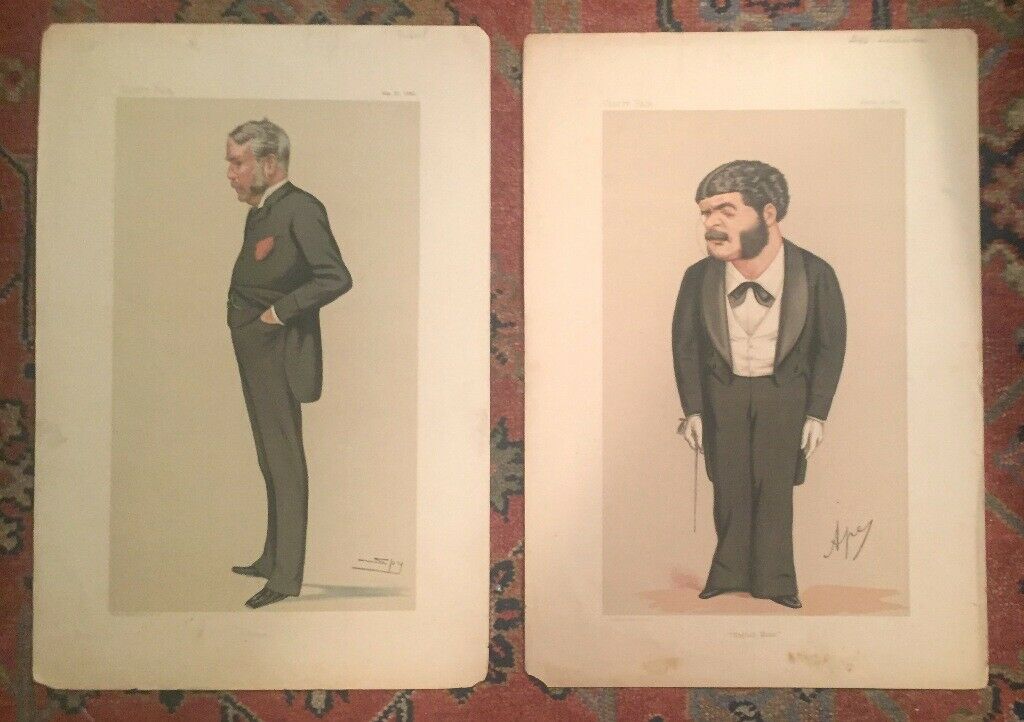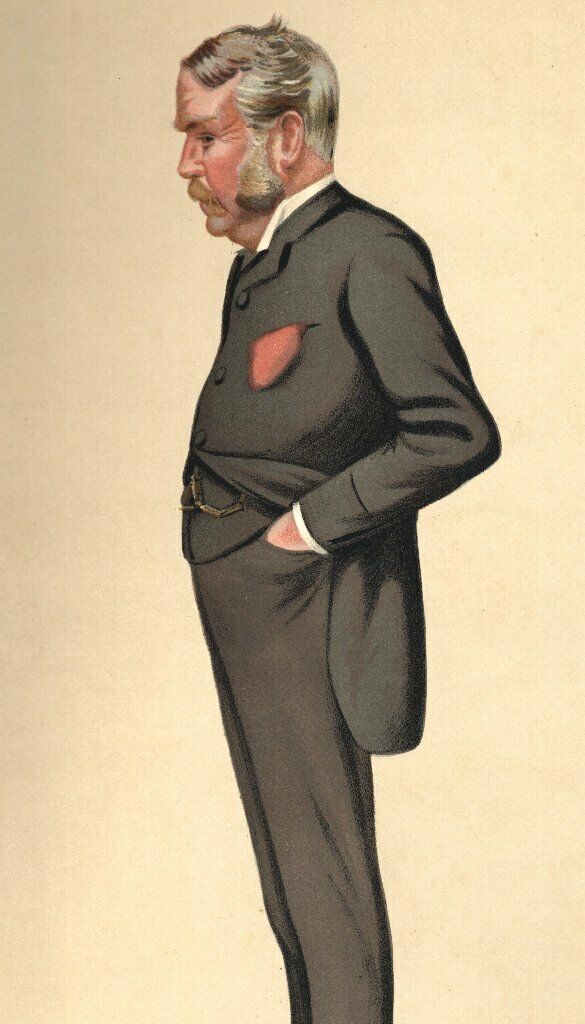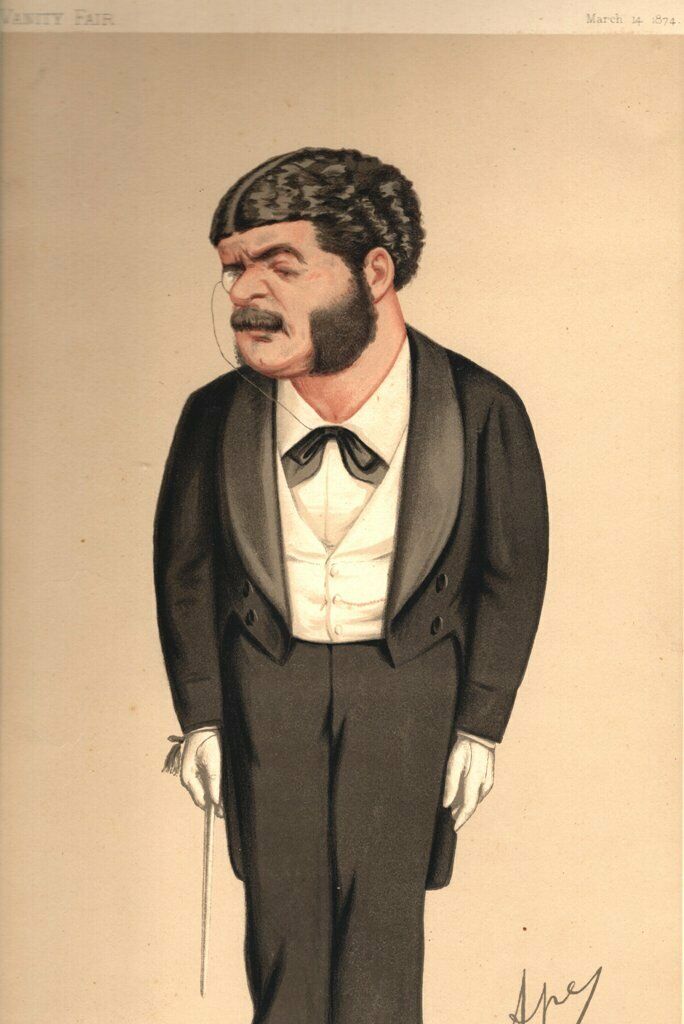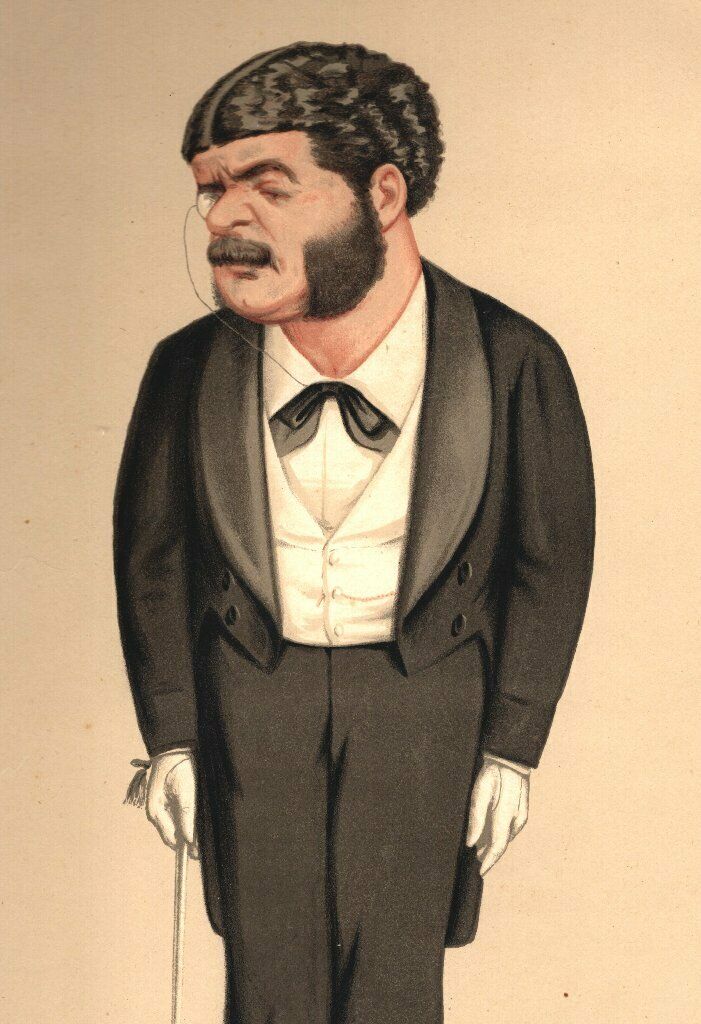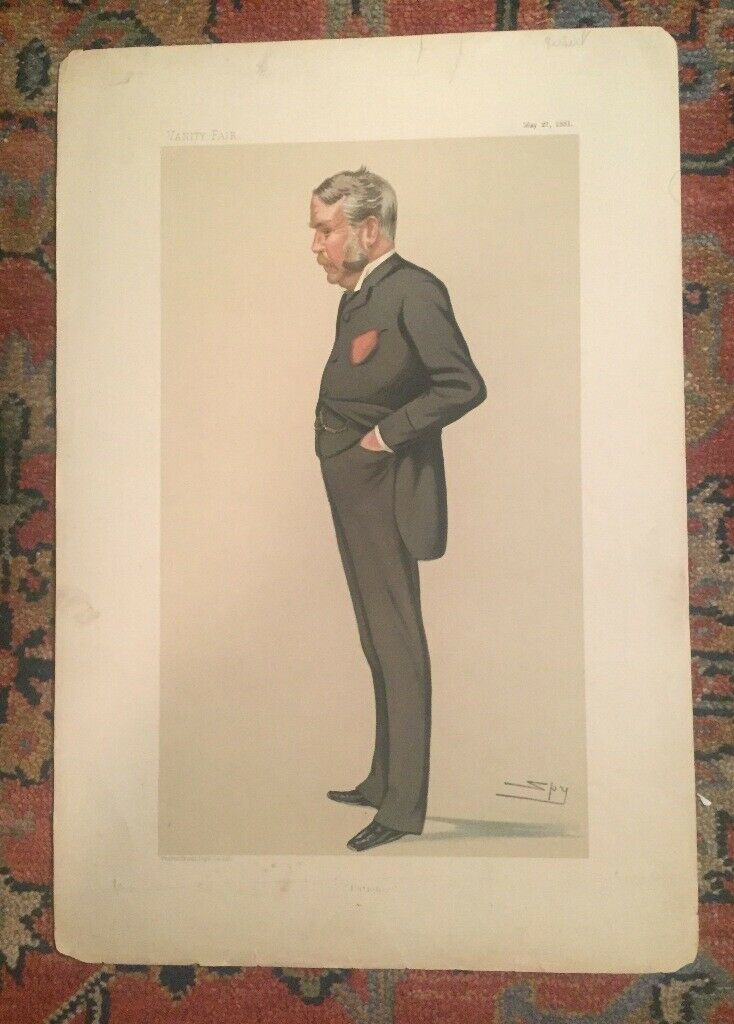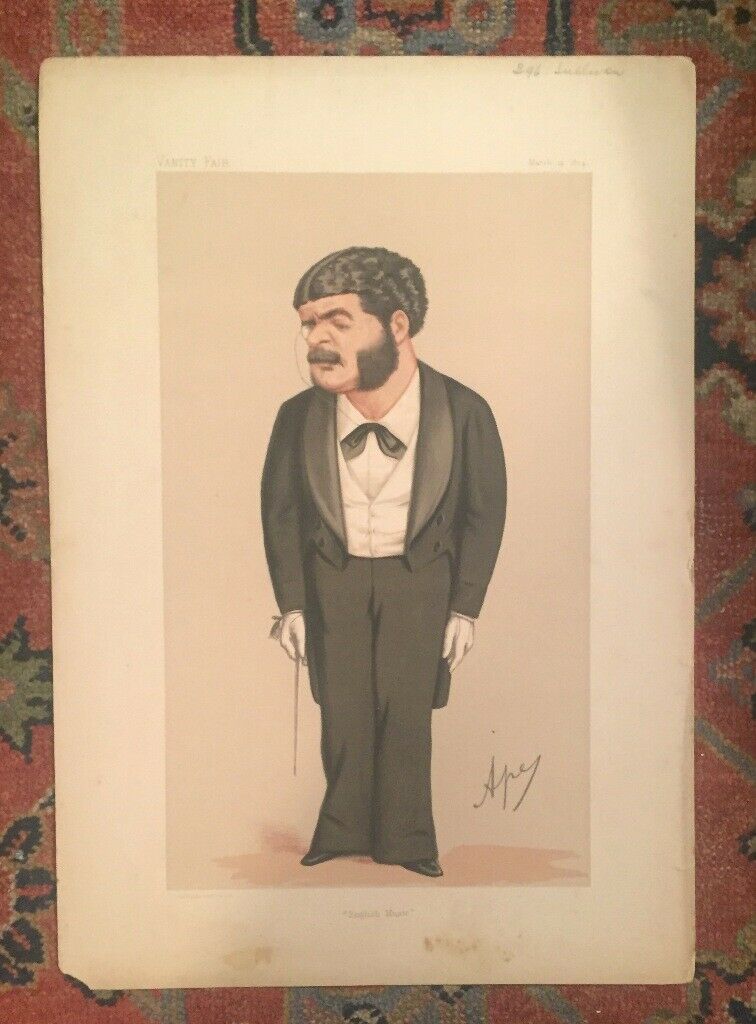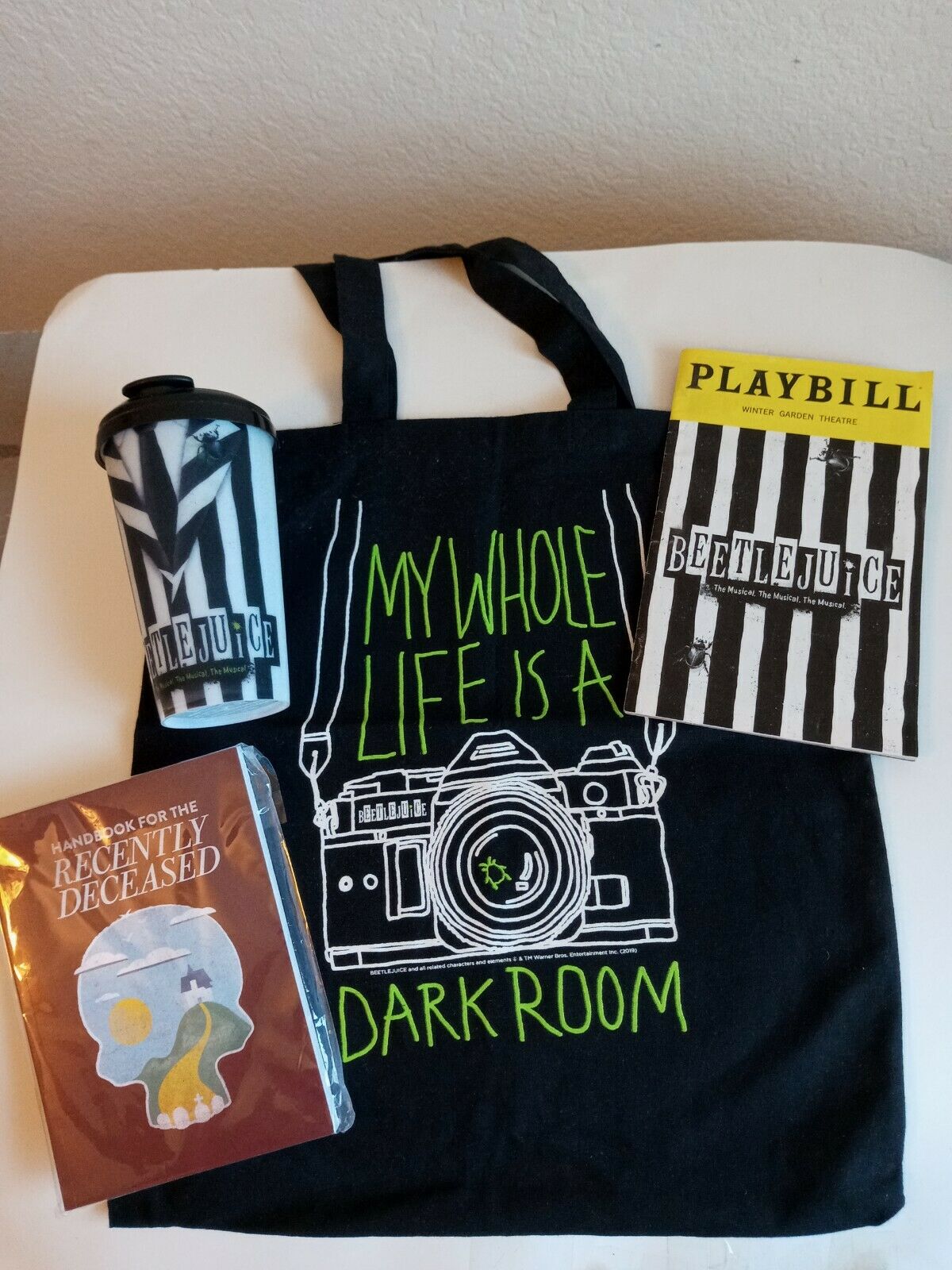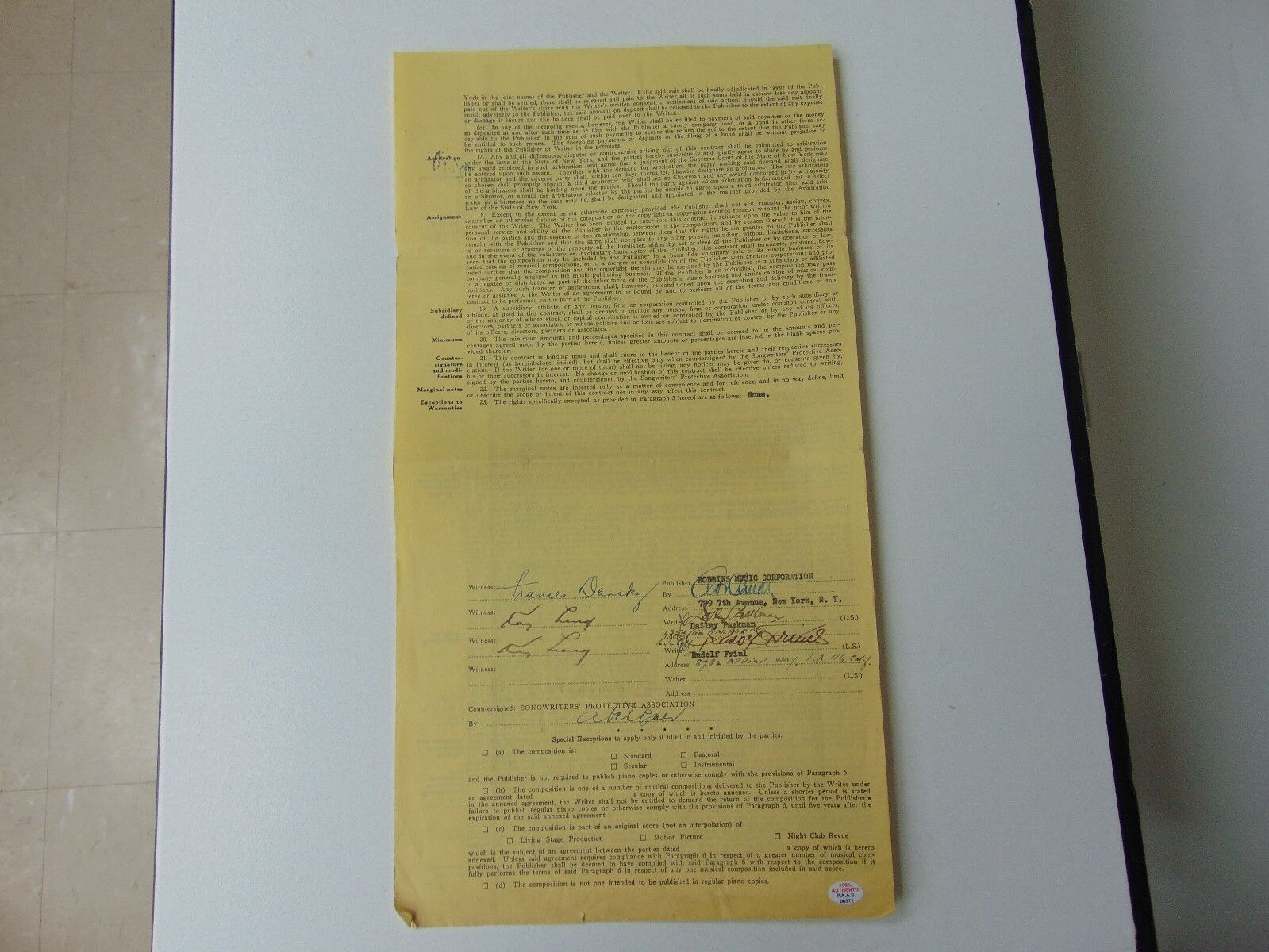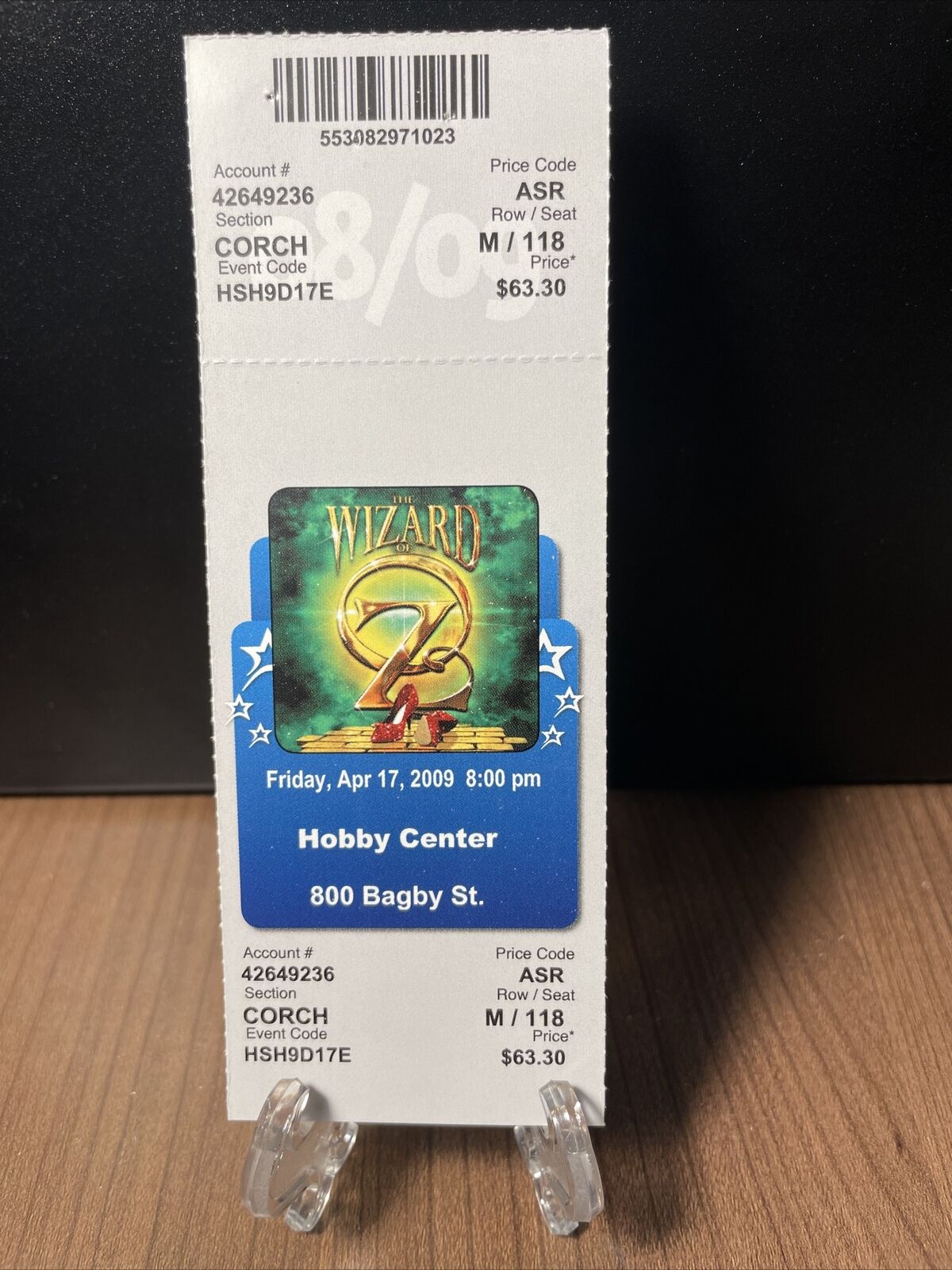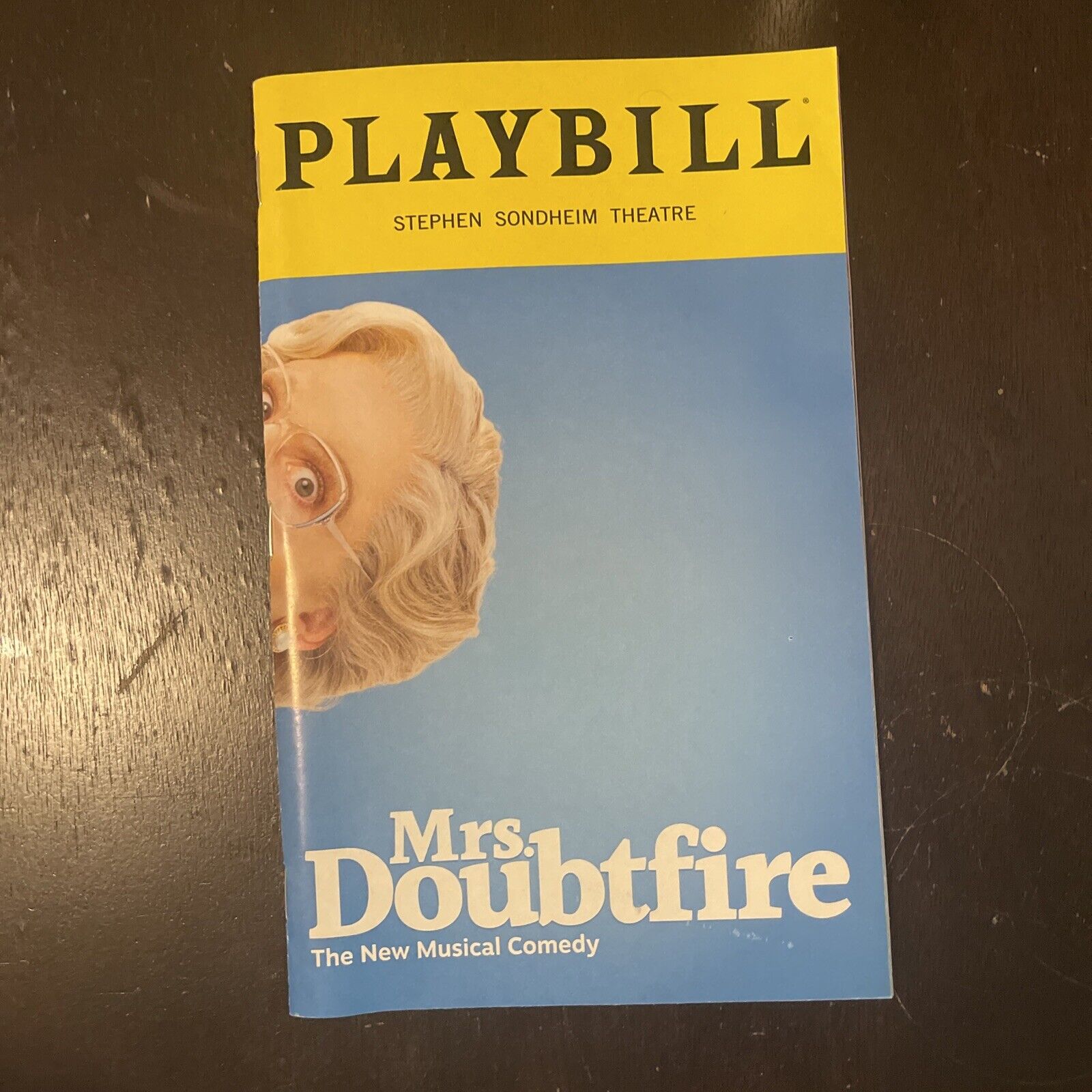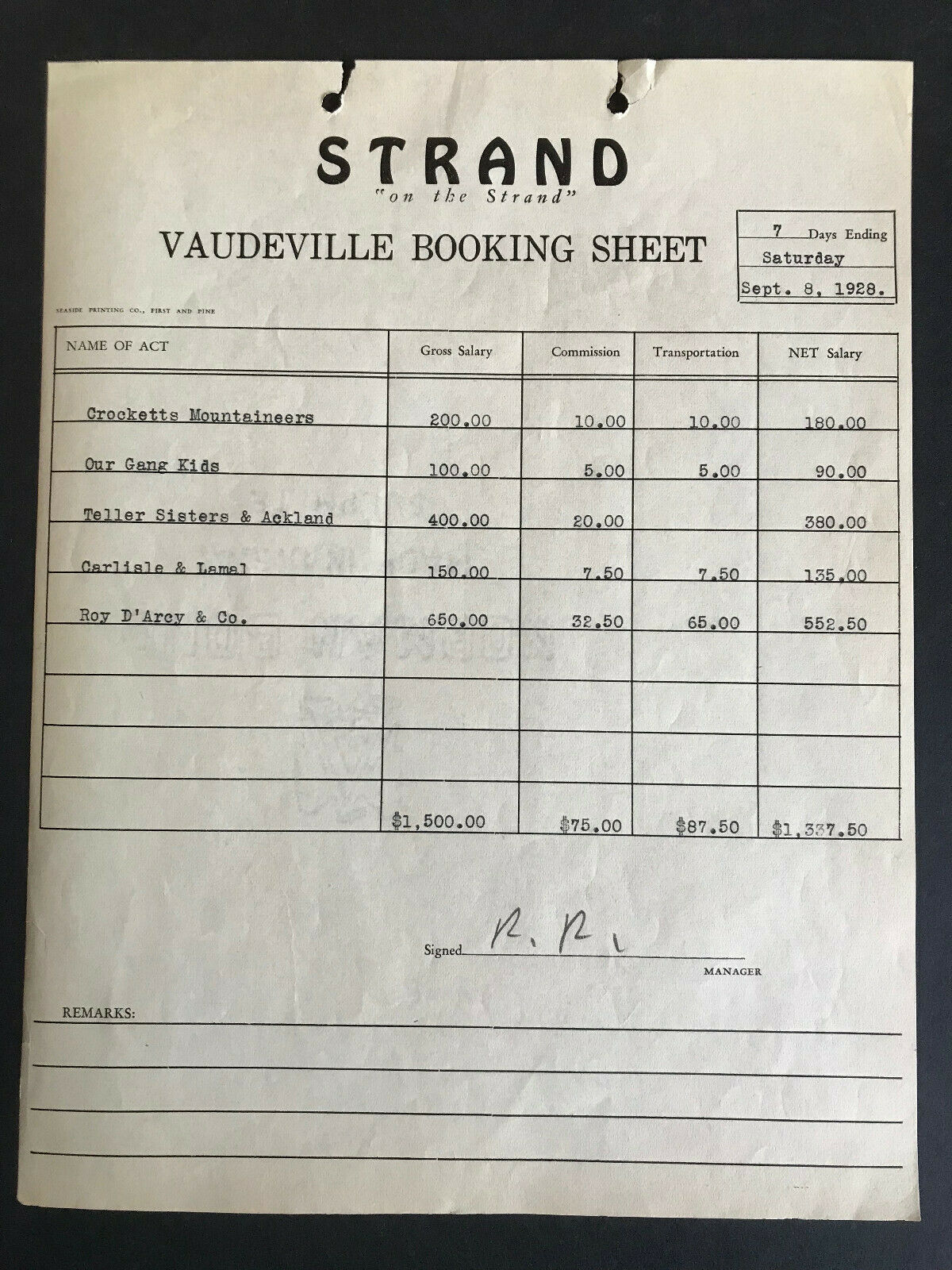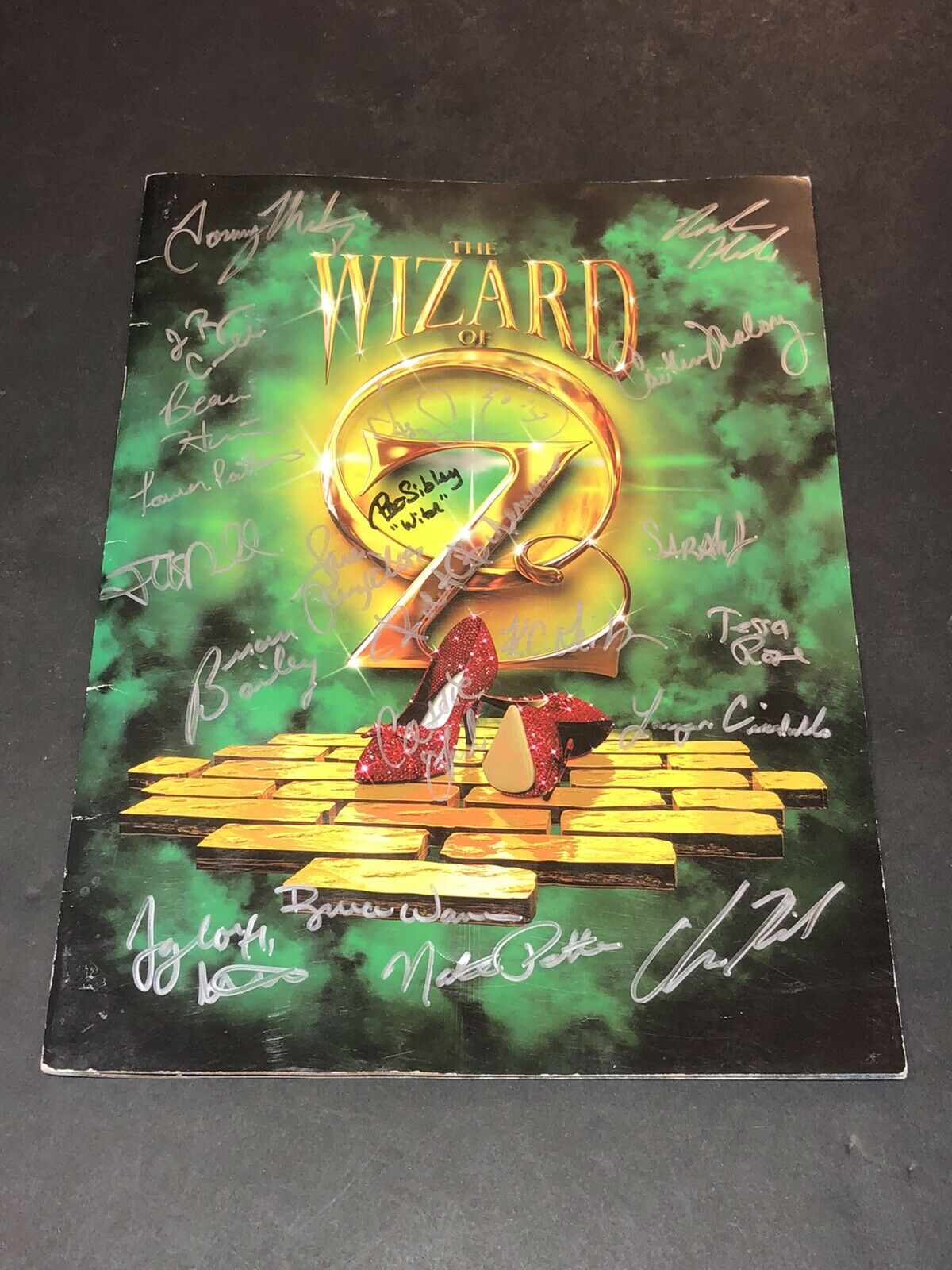-40%
*GILBERT & SULLIVAN: RARE VANITY FAIR PRINTS OF W S GILBERT & ARTHUR SULLIVAN*
$ 200.63
- Description
- Size Guide
Description
Two rare original Vanity Fair prints of W. S. Gilbert and Arthur Sullivan. Dimensions of each fifteen and a half by ten and three quarters inches. The Sullivan print was originally published March 14, 1874, and the Gilbert print was published May 21, 1881. Light edgewear and small tears otherwise good. See the story of Gilbert and Sullivan below.Buyer pays insured shipping. Shipping discounts for multiple purchases. Inquiries always welcome. Please visit my other eBay items for more early theatre, opera, film and historical autographs, photographs and programs and great actor and actress cabinet photos and CDV's.
From Wikipedia:
Gilbert and Sullivan
refers to the
Victorian-era
theatrical partnership of the
dramatist
W. S. Gilbert
(1836–1911) and the composer
Arthur Sullivan
(1842–1900) and to the works they jointly created. The two men collaborated on fourteen
comic operas
between 1871 and 1896, of which
H.M.S. Pinafore
,
The Pirates of Penzance
and
The Mikado
are among the best known.
[1]
Gilbert, who wrote the
libretti
for these operas, created fanciful "topsy-turvy" worlds where each absurdity is taken to its logical conclusion—fairies rub elbows with British lords, flirting is a capital offence, gondoliers ascend to the monarchy, and pirates emerge as noblemen who have gone astray.
[2]
Sullivan, six years Gilbert's junior, composed the music, contributing memorable melodies
[3]
that could convey both humour and pathos.
[4]
Their operas have enjoyed broad and enduring international success and are still performed frequently throughout the English-speaking world.
[5]
[6]
Gilbert and Sullivan introduced innovations in content and form that directly influenced the development of
musical theatre
through the 20th century.
[7]
The operas have also influenced political discourse, literature, film and television and have been widely parodied and
pastiched
by humorists. Producer
Richard D'Oyly Carte
brought Gilbert and Sullivan together and nurtured their collaboration.
[8]
He built the
Savoy Theatre
in 1881 to present their joint works (which came to be known as the
Savoy Operas
) and founded the
D'Oyly Carte Opera Company
, which performed and promoted Gilbert and Sullivan's works for over a century.
Sir William Schwenck Gilbert
[n 1]
(18 November 1836 – 29 May 1911) was an English
dramatist
,
librettist
, poet and illustrator best known for his
collaboration
with composer
Arthur Sullivan
, which produced fourteen
comic operas
. The most famous of these include
H.M.S. Pinafore
,
The Pirates of Penzance
and one of the most frequently performed works in the history of musical theatre,
The Mikado
.
[1]
The popularity of these works was supported for over a century by year-round performances of them, in Britain and abroad, by the repertory company that Gilbert, Sullivan and their producer
Richard D'Oyly Carte
founded, the
D'Oyly Carte Opera Company
. These
Savoy operas
are still frequently performed in the English-speaking world and beyond.
[2]
Gilbert's creative output included over 75 plays and
libretti
, and numerous short stories, poems and lyrics, both comic and serious. After brief careers as a government clerk and a lawyer, Gilbert began to focus, in the 1860s, on writing light verse, including his
Bab Ballads
, short stories, theatre reviews and illustrations, often for
Fun
magazine. He also began to write
burlesques
and his first comic plays, developing a unique absurdist, inverted style that would later be known as his "topsy-turvy" style. He also developed a
realistic
method of stage direction and a reputation as a strict theatre director. In the 1870s, Gilbert wrote 40 plays and libretti, including his
German Reed Entertainments
, several blank-verse "fairy comedies", some serious plays, and his first five collaborations with Sullivan:
Thespis
,
Trial by Jury
,
The Sorcerer
,
H.M.S. Pinafore
and
The Pirates of Penzance
. In the 1880s, Gilbert focused on the Savoy operas, including
Patience
,
Iolanthe
,
The Mikado
,
The Yeomen of the Guard
and
The Gondoliers
.
In 1890, after this long and profitable creative partnership, Gilbert quarrelled with Sullivan and Carte concerning expenses at the Savoy Theatre; the dispute is referred to as the "carpet quarrel". Gilbert won the ensuing lawsuit, but the argument caused hurt feelings among the partnership. Although Gilbert and Sullivan were persuaded to collaborate on two last operas, they were not as successful as the previous ones. In later years, Gilbert wrote several plays, and a few operas with other collaborators. He retired, with his wife Lucy, and their ward,
Nancy McIntosh
, to a country estate,
Grim's Dyke
. He was
knighted
in 1907. Gilbert died of a heart attack while attempting to rescue a young woman to whom he was giving a swimming lesson in the lake at his home.
Gilbert's plays inspired other dramatists, including
Oscar Wilde
and
George Bernard Shaw
,
[3]
and his comic operas with Sullivan inspired the later development of American
musical theatre
, especially influencing Broadway librettists and lyricists. According to
The Cambridge History of English and American Literature
, Gilbert's "lyrical facility and his mastery of metre raised the poetical quality of comic opera to a position that it had never reached before and has not reached since".
[4]
Sir Arthur Seymour Sullivan
MVO
(13 May 1842 – 22 November 1900) was an English composer. He is best known for 14
operatic
collaborations
with the dramatist
W. S. Gilbert
, including
H.M.S. Pinafore
,
The Pirates of Penzance
and
The Mikado
. His works include 24 operas, 11 major orchestral works, ten choral works and
oratorios
, two ballets,
incidental music
to several plays, and numerous church pieces, songs, and piano and chamber pieces. His hymns and songs include "
Onward, Christian Soldiers
" and "
The Lost Chord
".
The son of a military bandmaster, Sullivan composed his first anthem at the age of eight and was later a soloist in the boys' choir of the
Chapel Royal
. In 1856, at 14, he was awarded the first
Mendelssohn Scholarship
by the
Royal Academy of Music
, which allowed him to study at the academy and then at the
Leipzig Conservatoire
in Germany. His graduation piece, incidental music to
Shakespeare
's
The Tempest
(1861), was received with acclaim on its first performance in London. Among his early major works were a ballet,
L'Île Enchantée
(1864), a
symphony
, a
cello concerto
(both 1866), and his
Overture di Ballo
(1870). To supplement the income from his concert works he wrote hymns,
parlour ballads
and other light pieces, and worked as a church organist and music teacher.
In 1866 Sullivan composed a one-act
comic opera
,
Cox and Box
, which is still widely performed. He wrote his first opera with W. S. Gilbert,
Thespis
, in 1871. Four years later, the
impresario
Richard D'Oyly Carte
engaged Gilbert and Sullivan to create a one-act piece,
Trial by Jury
(1875). Its box-office success led to a series of twelve full-length comic operas by the collaborators. After the extraordinary success of
H.M.S. Pinafore
(1878) and
The Pirates of Penzance
(1879), Carte used his profits from the partnership to build the
Savoy Theatre
in 1881, and their joint works became known as the
Savoy operas
. Among the best known of the later operas are
The Mikado
(1885) and
The Gondoliers
(1889). Gilbert broke from Sullivan and Carte in 1890, after a quarrel over expenses at the Savoy. They reunited in the 1890s for two more operas, but these did not achieve the popularity of their earlier works.
Sullivan's infrequent serious pieces during the 1880s included two
cantatas
,
The Martyr of Antioch
(1880) and
The Golden Legend
(1886), his most popular choral work. He also wrote incidental music for
West End
productions of several Shakespeare plays, and held conducting and academic appointments. Sullivan's only
grand opera
,
Ivanhoe
, though initially successful in 1891, has rarely been revived. In his last decade Sullivan continued to compose comic operas with various librettists and wrote other major and minor works. He died at the age of 58, regarded as Britain's foremost composer. His comic opera style served as a model for generations of musical theatre composers that followed, and his music is still frequently performed, recorded and
pastiched
.
